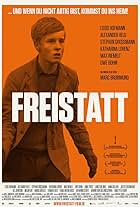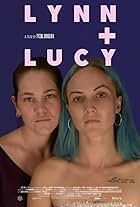IMDb RATING
7.3/10
3.1K
YOUR RATING
A Yenish boy experiences the Nazi euthanasia program while he is in a mental hospital.A Yenish boy experiences the Nazi euthanasia program while he is in a mental hospital.A Yenish boy experiences the Nazi euthanasia program while he is in a mental hospital.
- Director
- Writers
- Stars
- Awards
- 7 wins & 3 nominations total
Juls Serger
- Hermann Klein
- (as Juls Luis Serger)
- Director
- Writers
- All cast & crew
- Production, box office & more at IMDbPro
Featured reviews
I don't actually know why the movie is called "Fog in August" as that image is never referenced in the movie. It is taken from the eponymous book it's based on, perhaps it is explained there.
The historical backdrop of the movie is "T4", the Nazi campaign to kill those deemed "unworthy to live" because they were handicapped, suffered from a psychiatric condition or -- in many cases -- were just unruly or even merely unpopular with the authorities. The film acts as a docudrama, trying to get some historical facts across while narrating the coming of age-story of Ernst Lossa, a around fourteen-years-old rapscallion. In real life, his father was eventually murdered by the Nazis because he was a traveling artisan.
The film creates some dramatic tension by pitching two nurses against each other in an unlikely fashion. Stern-looking "mother superior" Sophia is a devout catholic who does the right thing by trying to protect her wards, while doe-eyed sister Edith acts as the angel of death, killing children on command by giving them raspberry juice mixed with barbiturates.
There is nothing wrong with this movie, and it has a great cast to boot. On the other hand, it's simply another moral showcase about Nazi evils, and you have to be somewhat masochistically inclined to watch it voluntarily. I'm worried that a large part of German cinematic production these days is uninspired "propaganda for the right cause". Hopefully, this movie will inspire many viewers to research the history of T4 on their own.
The historical backdrop of the movie is "T4", the Nazi campaign to kill those deemed "unworthy to live" because they were handicapped, suffered from a psychiatric condition or -- in many cases -- were just unruly or even merely unpopular with the authorities. The film acts as a docudrama, trying to get some historical facts across while narrating the coming of age-story of Ernst Lossa, a around fourteen-years-old rapscallion. In real life, his father was eventually murdered by the Nazis because he was a traveling artisan.
The film creates some dramatic tension by pitching two nurses against each other in an unlikely fashion. Stern-looking "mother superior" Sophia is a devout catholic who does the right thing by trying to protect her wards, while doe-eyed sister Edith acts as the angel of death, killing children on command by giving them raspberry juice mixed with barbiturates.
There is nothing wrong with this movie, and it has a great cast to boot. On the other hand, it's simply another moral showcase about Nazi evils, and you have to be somewhat masochistically inclined to watch it voluntarily. I'm worried that a large part of German cinematic production these days is uninspired "propaganda for the right cause". Hopefully, this movie will inspire many viewers to research the history of T4 on their own.
Firstly, I'd like to give my interpretation of what the title "Fog in August" means, since a previous reviewer was rather baffled at the title. The "fog" (nebel) was the deception employed by the administration when continuing the T4 (euthanasia) programme even though it had "officially" been abandoned by the Nazis. The "August" is the summer - the season that the film was obviously set in.
The two nurses are worthy of a mention here because they defy the stereotype: one, the hatchet-faced Catholic dogmatist is the true humanitarian. The other, an attractive, sweet talking and easy-going blue eyed young woman, is the reliable child killer, using raspberry juice to keep the lethal dose of barbiturate down. On the other hand, the medical director is a man who seems determined to see his projects through with efficiency no matter what the cost - the epitome of a Nazi stooge stereotype (but a well defined and well acted one).
The children were portrayed brilliantly. There are touching and realistic moments here that don't descend into sentimentality and help you to empathize with the victims rather than merely sympathize.
This film is difficult to watch but it has to be, because it's portraying an event in history many people would rather not contemplate. An event that occurred at a time when many people went mad in the wake of recession and populist extremism. It's a warning from history put into film. And it's a well acted and considered warning at that.
The two nurses are worthy of a mention here because they defy the stereotype: one, the hatchet-faced Catholic dogmatist is the true humanitarian. The other, an attractive, sweet talking and easy-going blue eyed young woman, is the reliable child killer, using raspberry juice to keep the lethal dose of barbiturate down. On the other hand, the medical director is a man who seems determined to see his projects through with efficiency no matter what the cost - the epitome of a Nazi stooge stereotype (but a well defined and well acted one).
The children were portrayed brilliantly. There are touching and realistic moments here that don't descend into sentimentality and help you to empathize with the victims rather than merely sympathize.
This film is difficult to watch but it has to be, because it's portraying an event in history many people would rather not contemplate. An event that occurred at a time when many people went mad in the wake of recession and populist extremism. It's a warning from history put into film. And it's a well acted and considered warning at that.
Considering the horrors of both the euthanasia program as well as the mass-murder of romani people and disabled in nazi-germany and the fact that we don't hear that much about this part of history, Nebel im August (Fog in August) has an important role to play. What could've been over-blown melodrama is a rather simple story about a young boy in the cold, isolated german hospital. The portrait is filled with authentic looks, almost to the point of feeling a bit flat but Ivo Pietzcker as the lead fills the film with a glow. It's sometimes crippled by a hamfisted storytelling, but does manage to convey an interesting image of the nazi program without feeling too didactic, proving that there's still important stories from this time in history worth telling on screen.
I am a nurse, I feel sick in My stomach. Just reading that the doctor and nurse doing All these killings of children and adults, just got maximum 4 years in prison, and still could work as a nurse after the prisontime. It is disqusting, these murderers should have gotten life in prison or the death penalty.
A great movie, in nazi Germany told from a childs point of view. How horrible some humans can be. The involuntary euthanasia program in Nazi Germany was one of the worse things in the history of Germany. So many children killed, children that clearly could live a long life in good care, but nazi Germany needed money for their warmachine, not using it on mental sick People. So killing them was cheaper and as the nazi also believed, making their Country free of handicapped and mental sick persons. But as we All know, being a Nazi is the most mental sick you can be...
A great movie, in nazi Germany told from a childs point of view. How horrible some humans can be. The involuntary euthanasia program in Nazi Germany was one of the worse things in the history of Germany. So many children killed, children that clearly could live a long life in good care, but nazi Germany needed money for their warmachine, not using it on mental sick People. So killing them was cheaper and as the nazi also believed, making their Country free of handicapped and mental sick persons. But as we All know, being a Nazi is the most mental sick you can be...
Finding this movie was a big surprise. The title and subject were a drawcard but, did not expect to find a modern German treatment of this theme, to be so near perfection. It's un-sensationalistic and visually striking - with both the director Kai Wessel and cinematographer Hagen Bogdanski pulling out all stops to create a fully involving experience. Based on actual events as documented in Robert Dome's novel (Domes won both the Gustav Heinemann Peace Prize and the Lufti literature prize for this work). The screenplay adaptation by prolific writer/actor Holger Karsten Schmidt, might perhaps feature some over extended elements (in a couple of minor details) - for some, this may also include the unnecessary addition of a 'symbolic' character - in an attempt to add an uplifting finale (although the movie is honest enough to fully acknowledge this!).
Impressive performances litter this thoughtful production - featuring standout leads from Ivo Pietzcker as Ernst Lossa, the young Yenish lad sent to a Nazi sanatorium while waiting for his father to be processed in a camp, Sebastian Koch as the enigmatic Dr Veithausen (a character not easily forgotten) Henriette Confurius and Fritzi Haberlandt as nurses with conflicting views on the Fuhrer's methods. Many other vibrant cast members shine throughout. There's even a look at the acquiescence of the Catholic Church during this shocking time. The situations depicted creep up on you until the full extent of their seriousness is realised. While this theme (factual) may not appeal to everyone (but what does?) those who like movies based on contemporary historical events - brought to life in compelling detail, should not be disappointed. Highly recommended for serious viewers.
Impressive performances litter this thoughtful production - featuring standout leads from Ivo Pietzcker as Ernst Lossa, the young Yenish lad sent to a Nazi sanatorium while waiting for his father to be processed in a camp, Sebastian Koch as the enigmatic Dr Veithausen (a character not easily forgotten) Henriette Confurius and Fritzi Haberlandt as nurses with conflicting views on the Fuhrer's methods. Many other vibrant cast members shine throughout. There's even a look at the acquiescence of the Catholic Church during this shocking time. The situations depicted creep up on you until the full extent of their seriousness is realised. While this theme (factual) may not appeal to everyone (but what does?) those who like movies based on contemporary historical events - brought to life in compelling detail, should not be disappointed. Highly recommended for serious viewers.
Storyline
Did you know
- TriviaIt's the story of Ernst Lossa born in 1929 in Augsburg. Lossa was a member of the Yenish, who are a group of Germans who have their own dialect of that language and who travel from place to place. (Perhaps the most comparable English-speaking group are the Irish Travelers.) Lossa was a bad kid, whose father ended up in Dachau at least twice (although he was released). After committing many petty crimes, he ended up at a sanitorium called Kaufbeuren, which is still in operation today.
- Crazy creditsThe movie's title is not shown until the start of the end credits.
- ConnectionsReferenced in La noche de...: La noche de... Niebla en agosto (2019)
- How long is Fog in August?Powered by Alexa
Details
Box office
- Budget
- $8,000,000 (estimated)
- Gross worldwide
- $72,895
- Runtime2 hours 1 minute
- Color
- Aspect ratio
- 2.35 : 1
Contribute to this page
Suggest an edit or add missing content






























